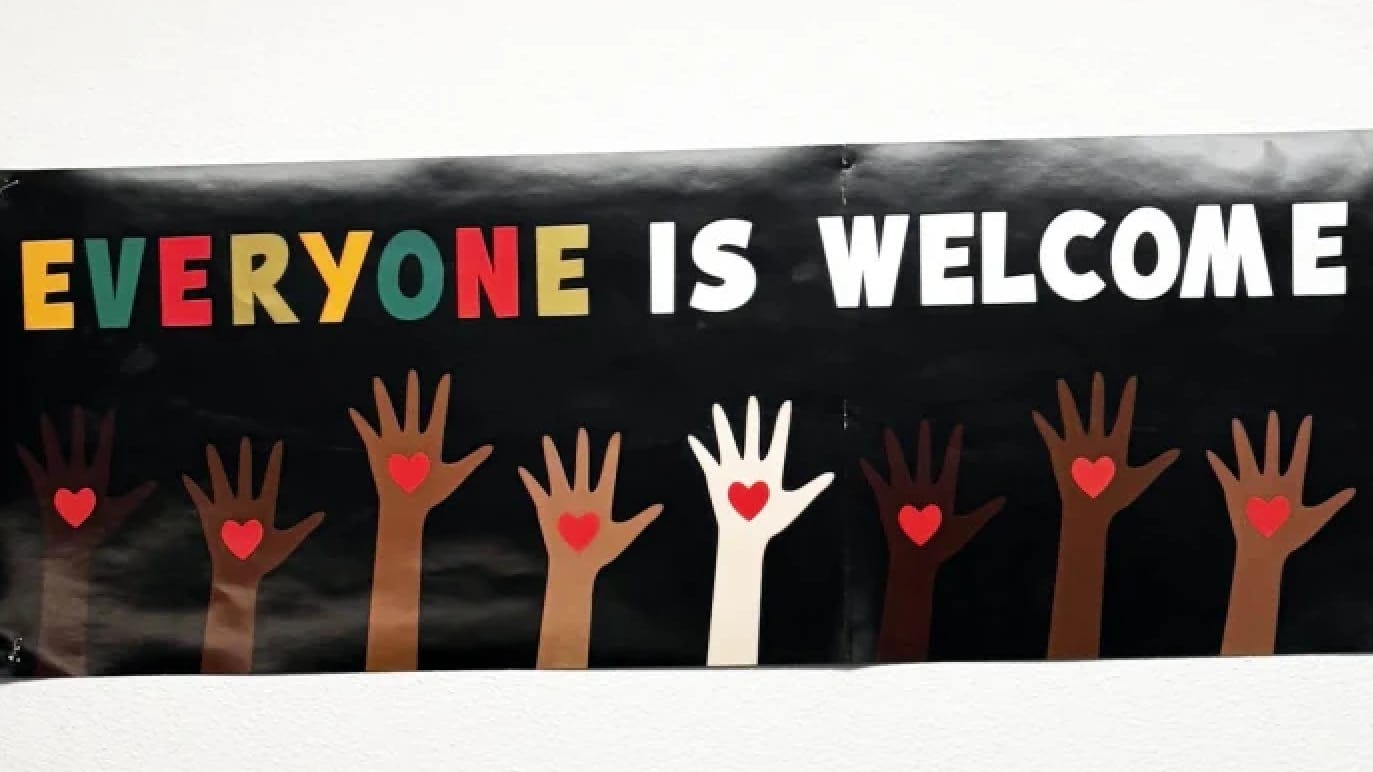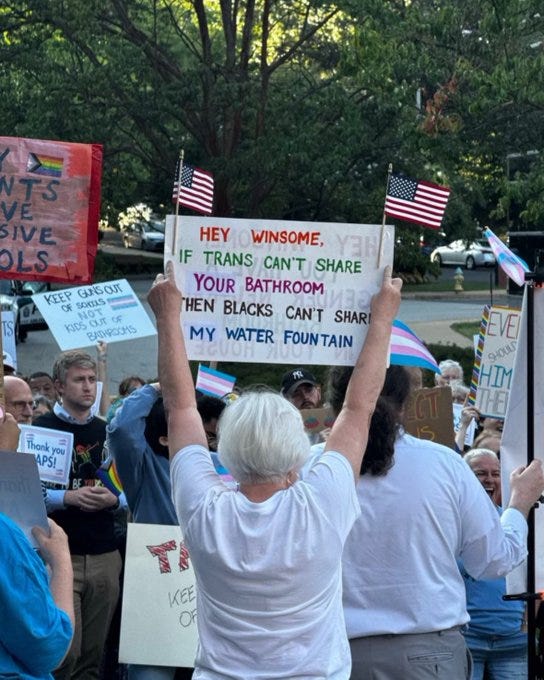The 4th of July is my favorite holiday. I love the parades, warm weather, grilling, and fireworks. What I love most about Independence Day is the sense of community it provokes. Everyone in Hartland comes together - head to toe in red, white, and blue - to celebrate our freedom, our people, our history, and our nation. We have plenty of work to do to improve these United States for everyone. But it is nice for a day to be just that: united.
I’m accustomed to my small-town 4th in Hartland. The parade, Old Home Day, burgers and dogs, hitting the river before heading to the fireworks. Running into everyone you know in town and seeing some folks you haven’t seen since last Independence Day. It’s a comfortable feeling for me. But this year, for the first time, my 4th of July wasn’t in Vermont but in Idaho. Ally and I went downtown in Boise to watch the parade. Firetrucks, old cars, floats, and political parties marched down West Bannock Steet backdropped by the state capitol building. We didn’t know anybody, and there weren’t as many tractors, but it was a nice parade. Walking back to where we had strung up our bikes, we passed city hall. And there, there was something new: a protest.
In college I became used to the familiar sight of protesters in Wilkins Plaza on the George Mason campus. I tried to observe but I never felt totally comfortable stopping my feet on my way to class. Protesting is one of our most sacred rights as Americans - one that has been employed throughout our history to achieve a variety of outcomes. But I never felt at place in the physical act of gathering, holding signs, flag-waiving, chanting, and speaking into bullhorns. I study politics and government, and I feel strongly about issues. Shouldn’t I be on the frontlines? I’d never joined a protest. Do I have to believe everything the others do? Do I have to agree with every sign around me to be in the group? The issues we face today are so nuanced, full of details that can be debated and disagreed on. To someone who values independence, protests can feel monolithic to me. I suppose writing is my preferred method of political expression!
Anyhow, I stumbled across a 4th of July protest for the first time at Boise city hall. Protesting on America’s birthday: clever messaging or in bad taste? I’m not sure myself. The protest was a local variant of the No Kings movement - against President Trump’s policies and, we’ll say, his methods of governing. I stood on the outskirts of the crowd, which grew to a decent size, engulfing me in people from the community. It was well organized and well intentioned, and I spotted a few signs I agreed with. But then I spotted one I didn’t: Republicans are not welcomed here. A masked man held up this sign and stood by the busy road next to city hall. He effectively made himself the image of the protest for everyone driving by that afternoon. Countless well-meaning protestors and messages sidelined by the man on the road. I was in the protest and his is the only sign I remember today. It is a classic example of one person ruining something for the rest. He regularly flipped his sign to show the passerby’s what was written on the back: Stop having sex with Republicans. A number of people went up to photograph this side. My stomach turned when he handed the sign to his also masked young son (probably 6 or 7) to parade by the road.
This protestor’s message comes in light of a recent controversy in Idaho. Idaho schoolteachers have been banned by the conservative state government from displaying variations of the image below in their classrooms, stating “Everyone is Welcome Here.”

From my view, it is clear that the protester I witnessed violated this principle that teachers and Democrats in the state have been rallying around. A beautiful message, everyone is welcome. Not only does it violate this principle, but I also think it’s terrible politics. Today, according to Pew Research, 46% of Americans identify with or lean toward the Republican party (compared to 45% for the Democratic party).
Forty-six percent of the American public are not welcome? Can we really convince ourselves that this is a winning strategy? I understand why the man protesting was upset, frustrated, and ready for a fight. But I feel as though this divisive messaging is counterproductive. There was a lot of good in the protest I attended. But I fear those messages were overshadowed by division. To say that political adversaries are not welcome cuts off any potentially genuine conversations across differences - conversations I believe we need to be having more of. In the NorthStar Narrative’s very first post I discussed how something is broken in our politics and the way we engage with it (and each other). Acts of division don’t just hurt the other side; they wind up hurting us all. It’s the cyclical back-and-forth battle that has led us to a place where nobody is better off. I like to believe we can drop our swords and find a new way forward.
The protest in Boise is one small example from my own experience. But it has been made abundantly clear in recent years (or days) how larger movements can get out of hand. In 2017 a white-supremacist rally in Charlottesville, Virginia turned deadly. In 2021, the January 6 protest of the 2020 election results saw the loss of life at the U.S. Capitol. Holding a sign at a protest doesn’t equate to these deadly, hateful events. They are national stains that can’t be excused. But these events don’t happen overnight, either. They’re cumulations of animosity, fueled by incremental individual actions. The current era of American politics deals in a currency of division. It will take strong individuals to exercise restraint, to listen, and to continue advocating in ways that build bridges rather than burn them, to move us forward.
Just last week in Arlington, Virginia, another unfortunate protest sign was photographed. This sign, in 2025, outside of a schoolboard meeting.

All it takes is a second thought. A short appeal to our better angels. And we can avoid events like this. I’ve seen this image everywhere on social media, but nothing about the message of the protest. This clearly isn’t a strategy meant to change minds or hearts. Isn’t that the goal of expression - the goal of politics? We can be more practical, more calculated, and more compassionate than this.
It isn’t protesting that is the issue, but the messaging that we’ve allowed ourselves to fall into. The deep polarization in our politics is not generating the best of us but instead bringing out the worst. When we say that people are not welcome, we are dismissing them. We are denying them the humanity in which we grant ourselves, and those who think like us. We are denying that people who disagree with us are thoughtful, rational, considerate, caring, or capable of understanding. Instead of assuming, we should extend an olive branch and try. We are all products of circumstance in our own ways, dealt a random hand at birth and molded by an almost-as-random environment. Keeping this in mind, we could all grant each other a little grace. Rather than excluding, start a conversation. We are all just trying to understand the world around us. It’s an easier process when we do it together.
I’m sure the Boise protest won’t be my last. I left with a bad taste in my mouth, but also with the affirmation that 99% of the people there were engaged citizens taking time out of their holiday to express genuine concern for their country. That’s a cool thing. Agree or not, it’s good to have people who care. If you are subscribed to my writing, I believe you care, too. So, I’d like to hear from you! What has it been like in your personal life to engage in politics? Have you had conversations with people who you disagree with? How did they go? How did you feel? From your point of view, what would help heal the divide in our country?
Drop a comment, shoot me a message, and have a great week!
Dylan Morse
The NorthStar Narrative






Great article Dylan!
I try to avoid protests myself as trouble seems to brew at these events, and signs like the ones you posted are inflammatory towards folks who don't have the ability to ignore such things. I've had discussions on several occasions with friends & families with differing views on politics which have been mostly thoughtful. My good friend & I are able to see each other's views, and often times agree with each other although we joke about our votes cancelling each other's out. My family member & I, not so much! lol